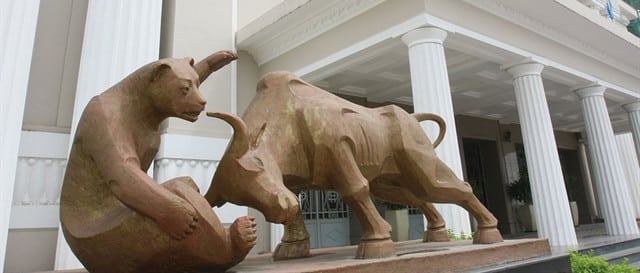How to Invest in Vietnam’s HOSE and HNX Stock Exchanges as a Foreigner
Vietnam is increasingly recognized as one of Asia’s fastest-growing frontier markets. With consistent GDP growth, a youthful population, rapid urbanization, and increasing openness to foreign capital, Vietnam’s stock market is drawing attention from investors worldwide.
Two key exchanges dominate the market: the Ho Chi Minh Stock Exchange (HOSE) and the Hanoi Stock Exchange (HNX). For foreigners eager to tap into Vietnam’s growth story, investing in these exchanges can be an exciting and rewarding venture—if you understand the framework and process.
Overview of Vietnam’s Stock Market Structure
Vietnam’s stock market comprises three main platforms:
-
HOSE (Ho Chi Minh Stock Exchange)
-
The largest and most active exchange
-
Home to major blue-chip companies like Vingroup, Vinamilk, Vietcombank, and PetroVietnam Gas
-
Offers higher liquidity and stricter listing standards
-
-
HNX (Hanoi Stock Exchange)
-
Second-largest exchange, mainly mid-cap and small-cap stocks
-
Also includes government bonds and the derivatives market (VN30 futures)
-
-
UPCoM (Unlisted Public Company Market)
-
Acts as a transition platform for companies preparing to list on HOSE or HNX
-
Typically higher risk, but higher potential reward
-
👉 For official market updates, visit the HOSE website and HNX website.
Can Foreigners Invest in Vietnam’s Stock Exchanges?
Yes, foreigners can invest in Vietnam’s stock market, although there are specific rules and ownership limits in place. The Vietnamese government has gradually relaxed regulations to attract more foreign portfolio investment (FPI). Key facts include:
-
Foreigners can own up to 100% of many publicly listed companies, except in sectors with restrictions (e.g., banking, aviation, defense).
-
Some companies still impose foreign ownership limits (FOL) of 49% or lower.
-
Foreigners must open a securities trading account and a custodian account at a licensed Vietnamese securities firm.
Step-by-Step Guide for Foreigners to Invest in HOSE & HNX
✅ Step 1: Appoint a Licensed Brokerage or Custodian Bank
Foreign investors must go through an authorized local brokerage or custodian bank registered with the State Securities Commission of Vietnam (SSC). Popular firms include:
-
SSI Securities Corporation
-
VNDirect
-
Yuanta Securities
-
MB Securities (MBS)
-
BIDV Securities
-
Viet Capital Securities
You may also consider foreign-linked custodians, such as HSBC Vietnam, Standard Chartered, or Citibank for higher-value investments.
✅ Step 2: Register for a Securities Trading Code (STC)
All foreign investors must register with the Vietnam Securities Depository (VSD) for a Securities Trading Code (STC). This process is usually handled by your brokerage and takes about 5–7 working days.
You’ll need to provide:
-
Valid passport or business license (for institutions)
-
Completed application forms (provided by the broker)
-
Tax identification details
👉 Apply or learn more at the Vietnam Securities Depository.
✅ Step 3: Open Trading and Custodian Accounts
Once your STC is approved:
-
A trading account will be opened under your name or entity.
-
A custodian account will hold your shares securely, with full compliance to Vietnam’s legal framework.
Make sure to:
-
Use VND (Vietnamese Dong) for all settlements
-
Confirm any applicable fees (custody, trading commissions, transfer charges)
✅ Step 4: Fund Your Account and Start Trading
You can fund your account by:
-
Transferring VND through a local bank
-
Or converting foreign currency via your brokerage’s support channels
Once funded, you’re ready to trade. Orders can be placed via:
-
Online platforms or mobile apps provided by your broker
-
Direct trading support for institutional accounts
✅ Step 5: Monitor Portfolio & Comply with Reporting Rules
Vietnamese authorities require periodic reporting of foreign investor positions, especially if you acquire more than 5% of a company. Your broker or custodian typically handles this, but staying informed is essential.
Key Indices to Watch
As you build your strategy, consider tracking these leading benchmarks:
-
VN-Index (HOSE): Covers all stocks on the Ho Chi Minh exchange
-
VN30 Index: 30 largest and most liquid stocks on HOSE
-
HNX Index: Represents stocks listed on the Hanoi exchange
-
HNX30 Index: Top 30 stocks on HNX in terms of market cap and liquidity
These indices provide a snapshot of market health and can serve as a basis for ETF or index investing.
Foreign Ownership Limits and Sector Restrictions
Vietnam has eased many foreign ownership limits (FOL), but some industries remain capped due to legal and national interest concerns:
| Sector | Foreign Ownership Limit |
|---|---|
| Banking | 30% (may rise in future reforms) |
| Aviation | 34% |
| Telecom (with network) | 49% |
| Real estate, manufacturing | Up to 100% (in most cases) |
Use your broker’s FOL tracking tool to know which companies still have room for foreign ownership.
What About Taxes and Dividends?
-
Capital Gains Tax: 0.1% on total transaction value, regardless of profit
-
Dividend Tax: 5% withholding tax on cash dividends for foreigners
-
No additional tax on capital gains for foreign individuals
Vietnam’s double tax treaties (DTTs) with several countries (e.g., Singapore, South Korea, Japan) can further reduce tax burdens—check with your tax advisor.
Top Sectors Attracting Foreign Investors
Some of the most attractive sectors on the HOSE and HNX include:
-
Banking & Finance: Vietcombank, BIDV, MB Bank
-
Consumer Goods: Vinamilk, Masan Group
-
Real Estate: Vinhomes, Novaland
-
Energy & Utilities: PetroVietnam Gas, PV Power
-
Technology & Telecommunications: FPT Corporation, Mobile World
Risks and Considerations
While Vietnam offers promising returns, consider these factors:
-
Currency Risk: VND is relatively stable but subject to macroeconomic shifts
-
Market Liquidity: Less than in developed markets—watch for bid-ask spreads
-
Transparency & Governance: Improving, but still developing
-
Political and Regulatory Risk: Monitor reforms and foreign investment policies
Conclusion: Is Vietnam a Good Investment for Foreigners?
Vietnam’s stock market offers long-term potential, strong demographics, and growth momentum that few frontier or emerging markets can match. Through HOSE and HNX, foreign investors can gain exposure to a wide range of dynamic sectors—from fintech to manufacturing to consumer goods.
The process is more streamlined than ever, and with a reliable local broker or agent, you can start investing with clarity and confidence. For those ready to diversify and seek returns beyond traditional markets, Vietnam may be the opportunity you’ve been looking for.
🔗 Ready to Get Started?
Connect with a trusted Vietnam stock market consultant or learn more at vietnam-agent.com—your gateway to investing, sourcing, and growing in Vietnam.

